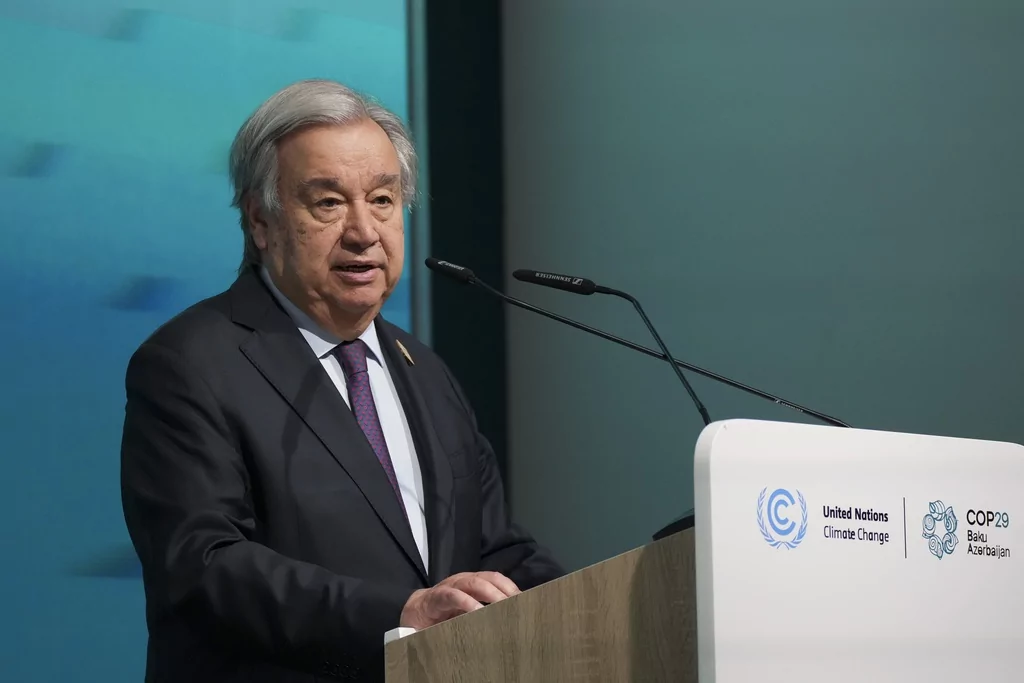
The United Nations Climate Change Conference released a draft deal Friday requiring wealthier countries to provide $250 billion per year until 2035 to help developing countries tackle the effects of climate change and transition toward renewable energy.
The two-week conference in Azerbaijan, which started on Nov. 11, is in its final hours as negotiators scramble to strike a deal on climate finance. This year, the conference’s goal was to provide funding for poorer nations to respond to climate change.

Since the beginning of the conference, there has been pressure to strike a deal. U.N. Secretary-General Antonio Guterres asked negotiators Thursday to agree on an “ambitious” climate finance deal.
“[A]llow me to repeat. What we need is clear: Agreement on an ambitious new climate finance goal in Baku in the context of a balanced set of decisions. Through its different components, that goal must mobilize the finance developing countries need,” Guterres said.
He added that a surge in finance is essential to ensure all nations can set plans to meet the 2015 Paris Agreement goal of limiting global temperatures from passing 1.5 degrees Celsius or 2.7 degrees Fahrenheit.
However, the released draft of the finance deal has already faced criticism from some, including Ali Mohamed, Kenya’s special envoy for chair of the African Group of Negotiators, who called it “totally unacceptable and inadequate,” the Guardian reported.
“Moreover, it is no longer developed countries who are responsible under this formulation. It is rendered as a target for which all countries are responsible and where developed countries are taking the lead. This is unacceptable,” Mohamed said.
Lidy Nacpil, a Filipino climate activist, said at a press conference, “I echo the call for our developed country party governments to reject this text and demand at the very least they come back with something that’s at least several times closer to what is right and what is just.”
“We cannot accept any more insults,” she added.
CLICK HERE TO READ MORE FROM THE WASHINGTON EXAMINER
The United States, European Union, Britain, Japan, and Canada are some of the countries expected to take the lead on financing. Developing countries can also contribute voluntarily to climate finance. Meanwhile, some have recommended that trillions of dollars are needed to address climate change.
The World Economic Forum said ahead of the conference, “If developed countries and the fossil fuel industry tackled climate change head-on four decades ago as its impacts became clear, the cost of confronting it today wouldn’t be as staggering — currently, around trillions of dollars.”







